Retailers looking to invest in their businesses are finding that loyalty to their symbol groups - and even their banks - can untap the finance they require. We take a look at the funding options available and the experiences of store owners in seeking a cash injection
All the signs are pointing upwards - business confidence and optimism appear to be growing among c-store retailers and the wider small business community. According to the Association of Convenience Stores’ Investment Tracker, more than one in four (28%) convenience retailers plan to invest in their stores this year - up from 21% in 2013 and 24% in 2014. Between February and May alone store owners invested £177m in their businesses, an average of more than £2,500 a store, the same figures reveal. Separate research from the Federation of Small Businesses reveals that 65% of small businesses aspire to grow in the next three months - the highest figure since its Small Business Index began in 2010.
So how are store owners financing projects? Of the retailers surveyed by the ACS, the main source of investment for most (76%) was their own funding; 10% relied mainly on their symbol group; and only 4% accessed most of their funding from banks, but in many cases all three sources may have played a part.
Banking on success
For retailers looking for help from their banks, there is evidence that they are becoming less cautious in their approach, but there is a greater chance of success among larger employers. The FSB revealed that 54% of small businesses which applied for credit in the second quarter of 2015 were successful, compared with 44% in the first half of 2012. However, only 46% of sole traders who applied for credit were approved, while 63% of small businesses with more than 50 employees were successful.
David Penney, owner of Penny Petroleum, which operates about 30 forecourt stores in the North East, believes the banks are lending more than in previous years. “I’ve found it easier to get access to bank funding recently; Santander have been brilliant. If they see you’re performing they’ll lend to you. We’re hitting targets and we’re an open book - it’s important to be transparent,” he says.
Clive Sheppard, director of the Chartman Group, which operates eight Spar stores in the South West, recently redeveloped his Winning Post forecourt store near Exeter. “We got the funding we needed from Lloyds, which we have been with for years. It helps if you’ve been with a bank for a while as they know your business better, and switching banks is harder than you’d think. It is much easier to access funding than it was five years ago. If you’ve got a decent business case you should get access now.”
David Peacock was a first-time retailer in his mid-20s when he bought his Mercer Way (Premier) c-store in Romsey, Hampshire, four years ago, and managed to gain some credit from the banks following much persistence. “I can’t say getting finance from a bank has ever been easy. I initially approached Natwest, but wasn’t so keen on their approach to my business, also no finance could be offered without a hefty chunk of a deposit,” he says. “I then went to Lloyds which, while being cautious towards retailers, have supported me. Initially, I only managed to secure a £5,000 overdraft, but over the years I have had this increased and did manage to secure two small loans, after year one and another after year two.”
But Paul Stone, who owns four stores in Manchester, believe the banks are still playing hard ball. “My store developments have been entirely self-funded,” he says. “When you borrow money form the banks I’ve found that they prefer to lend against property. The lending environment is still tough.”
An alternative to traditional banks is the British Business Bank, which was set up by the government in 2012 to improve the supply of credit to SMEs. It does not lend to SMEs directly, but works with other financial institutions to increase access to funding, such as by providing part-time guarantees for loans. To date it has leveraged more than £1.8bn of funding through its programmes. For more information go to british-business-bank.co.uk/bfg.
Symbol support
For those retailers who are banging their heads against the bank wall, symbol groups and wholesalers can provide financial solutions. Nisa and Costcutter both operate development funds, in which retailers are rewarded 1.5% of their total spend. Paul Sohal, of Nisa Crich Derbyshire, has utilised the fund for recent investments. “It provides enough for me to invest in my store, accruing the money just requires 90% compliance and buying certain products over a 13-week period, but it’s all the stuff you should be stocking anyway. There’s usually enough to cover a major investment.
“We’ve recently bought more chillers, LED lighting, a new coffee machine and slush machine, and a new epos system. It keeps us going for four or five years until the next refit is necessary.”
John Visana, who recently refurbished his Nisa in Saffron Walden, Essex, as part of the group’s ‘Store of the Future 2’ format, was able to finance a large proportion of the project through the development fund as reward for years of loyalty. “Nisa contributed about £50,000 for our refit, which cost about £150,000 altogether,” he says.
Working up a crowd
Hisbe, an ethical supermarket in Brighton, East Sussex, crowdfunded £30,000 from 338 supporters when it launched in 2013. “To date it is the most successful crowdfunding project in terms of numbers of supporters,” says Hisbe founder Amy Anslow.
“We spent three years building support online, through blogging and brand building, before launching the official campaign. You have to work hard to generate the interest beforehand. It also gave us a foundation of customers.”
Investors are rewarded with £12 in discounts for every £10 they spend in the shop.
It’s an option worth exploring for those with a community message to promote.
Peter Woods, of Costcutter Halstead and Hockley in Essex, financed a £5,000 mini refit in his Hockley store with Costcutter’s development fund. For his new store in Halstead, though, he funded most of the £120,000 redevelopment of the former Blockbuster site himself, but Costcutter’s contribution was invaluable. “Costcutter supplied signage, epos and in-store imagery and did the plan from start to finish. On the development side they were excellent,” he says. “They organised all the equipment and shopfitters.”
In addition to the development fund, Costcutter offers a range of financial packages to support retailers looking to undertake store development projects. “These have been created in partnership with a specialist finance house to provide cost-effective options to our retailers,” a spokesman said.
Londis invested £1m in store developments in the second half of 2014, with more than double that planned for 2015. The group says it offers flexible refit options to suit each store and budget. It has also developed a Return on Capital Investment (ROCI) initiative to help retailers develop their stores.
Jatinder Sahota recently embarked on a £120,000 refit of his Londis store on the Isle of Sheppey, Kent, with the help of the symbol group. “Londis is really good at working in partnership with retailers. The longer the relationship and more loyal you are, the more doors will open,” he says. “If you manage the cash flow, it’ll show. The banks will see it too.”
He says Londis more than met his expectations. “They contributed a healthy amount, more than justifying my loyalty,” he adds.
Ramesh Shingadia also benefited from the help of Londis for his store development in Southwater, West Sussex, last year. “There was their financial contribution, which made the project more affordable, but also the vital management side, which took a lot of the pressure off me, and was perhaps as valuable as the financial help,” he says.
Other symbol groups and wholesalers offer financial assistance, usually on a case by case basis. The likes of Budgens and Bestway offer rebate programmes, with the latter offering up to 5% cashback on purchases to Best-one members. They also offer loans and overdraft facilities from Bestway-owned bank UBL, which has branches in six UK locations.
Spar wholesalers offer financial assistance with store developments, ranging from development funds (James Hall), to soft loans and non-repayable grants linked to five-year contracts and performance clauses (Henderson Group), and co-investment.
David Charman, who received assistance from Blakemore to redevelop his Spar Parkfoot store in West Malling, Kent, says: “It’s very much a partnership and shows great commitment from the symbol group. It’s a welcome addition which wasn’t available half a dozen years ago.”
Ultimately, trust plays a key role in opening up finance. By giving banks or symbol groups the confidence to back them, independent retailers can continue to invest and adapt to the evolving market, thereby boosting their businesses and the wider economy.
Funding streams
For stores that have made an investment in their business, what is the main source of investment?
76% Funded from own reserves
10% Funded/provided by symbol group
7% Funded/provided by suppliers
4% Bank funding
2% Other wholesaler funding
1% Borrowed money from another business
0% Credit union or local lender
Source: Association of Convenience Stores (May 2015 - sample of 1,210 retailers)





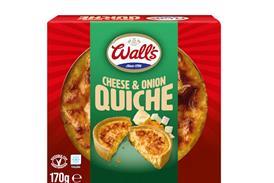









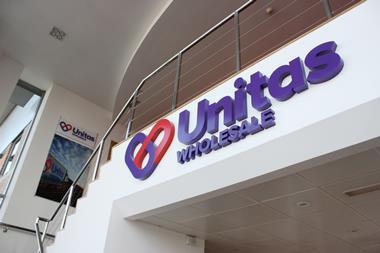
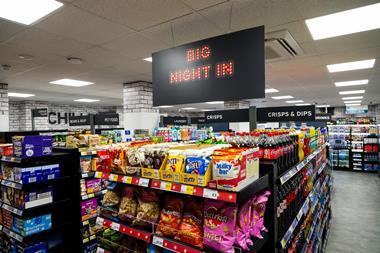

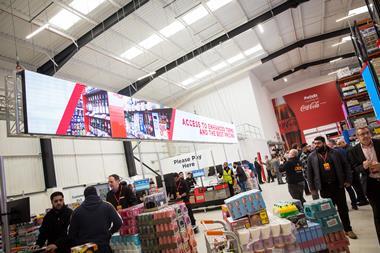
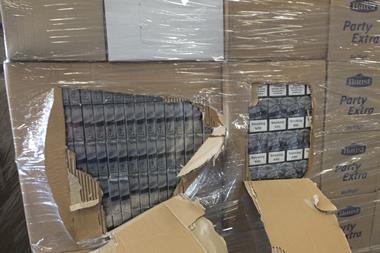

No comments yet